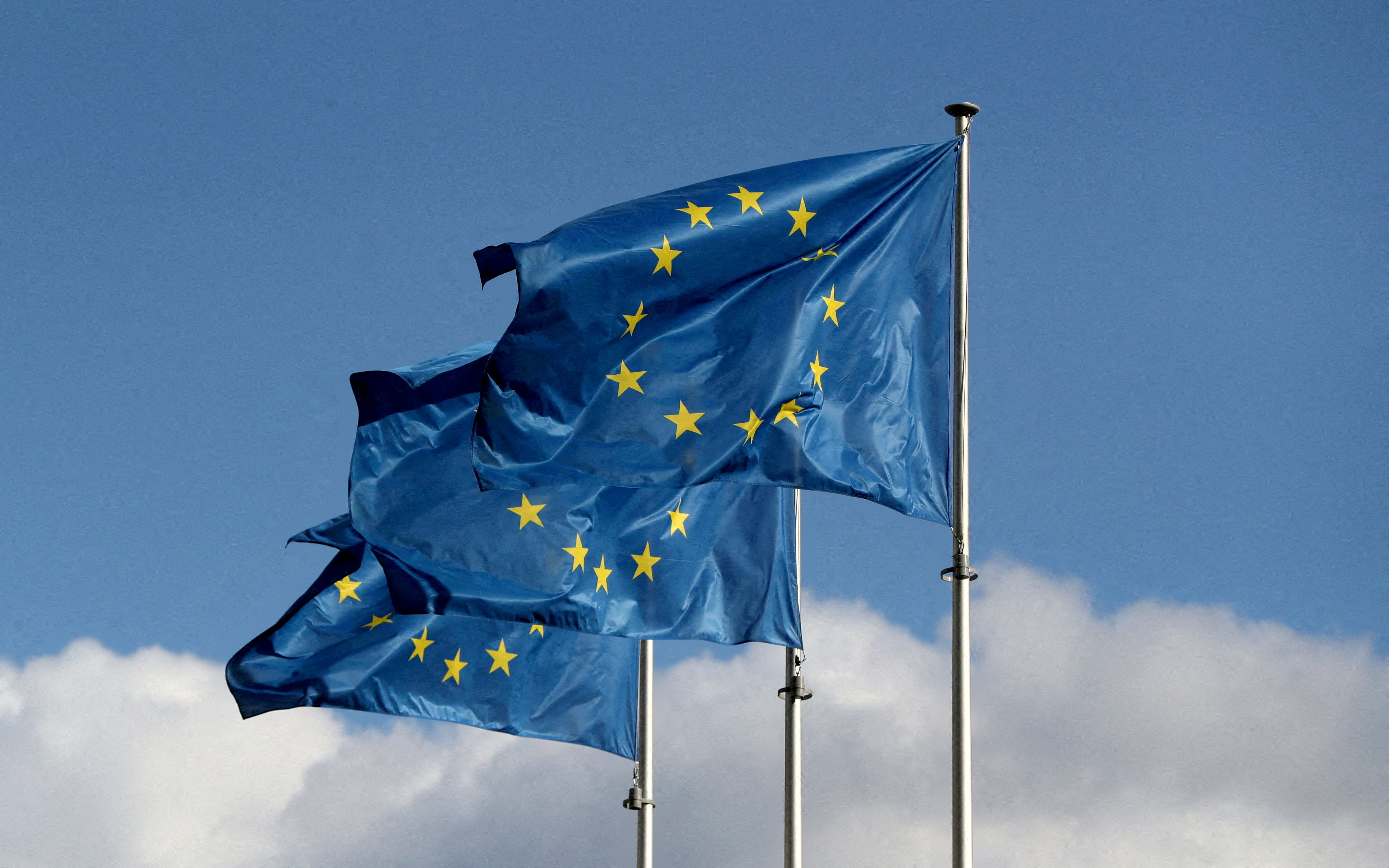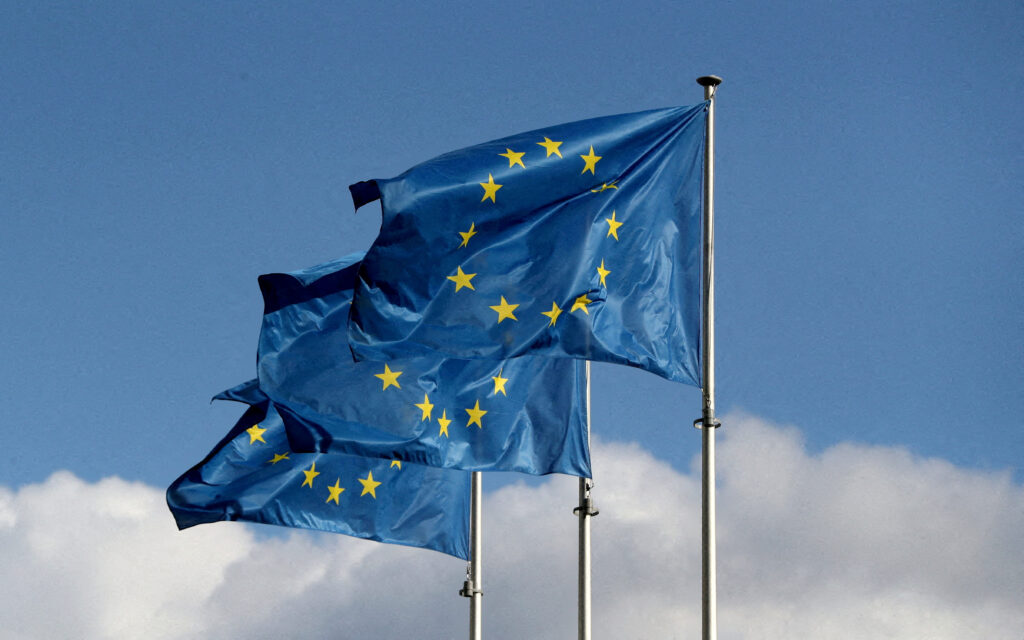
European Union flags fly outside the EU Commission headquarters in Brussels, Belgium September 19, 2019. REUTERS/Yves Herman/File Photo Acquire Licensing Rights
BRUSSELS, Oct 24 (Reuters) – More than a year after the U.S. Inflation Reduction Act (IRA) was signed into law, the European Commission has concluded that it is still too early to determine if its green subsidies are having an adverse impact on manufacturing in Europe.
EU governments expressed alarm that the $369 billion-plus in U.S. subsidies for electric vehicles and other green goods, often with local content requirements, could put Europe-based companies at a disadvantage or encouraging them to relocate.
The bloc’s leaders asked the EU executive in June to assess the IRA’s impact and its report on Tuesday concluded that the macroeconomic effect on Europe was so far limited, not least because potential investments had not yet fully materialised.
Longer term, the Commission’s report said that different studies had produced contrasting results.
The report noted that the IRA tax credits were not capped and so it was hard to estimate their total value. It was also difficult to differentiate between the impact from the IRA and other factors, such as higher EU energy costs.
A build-up of clean tech investment in the United States did not necessarily mean a decline in Europe, the report said. Europe’s predictable demand, science base and talented workforce promoting innovation were also pull factors for the continent.
The Commission said it would continue to monitor investment flows, while also discussing with Washington possible ways to mitigate the IRA’s impact.
Reporting by Philip Blenkinsop; Editing by Alexander Smith
: .


